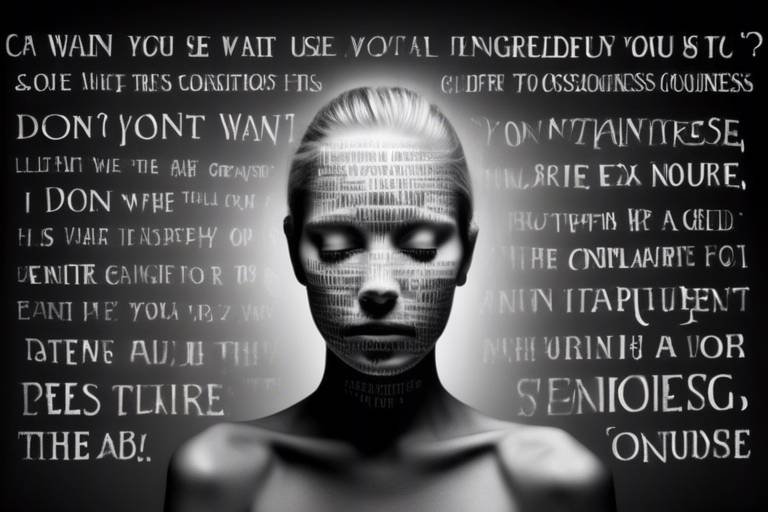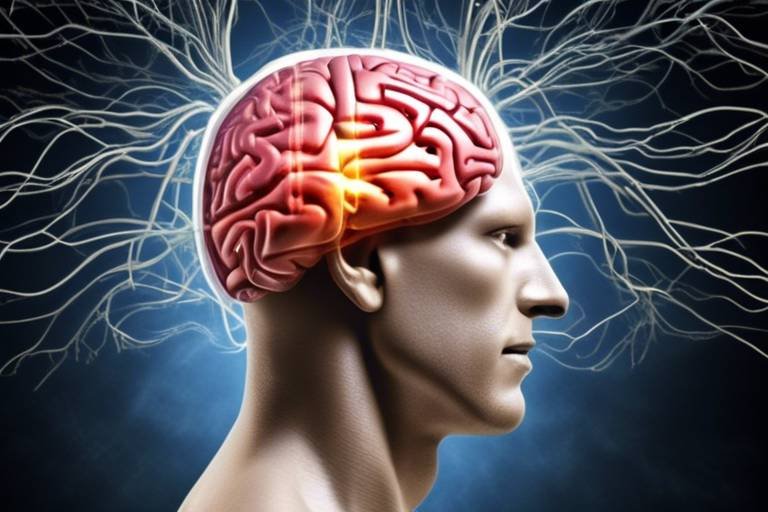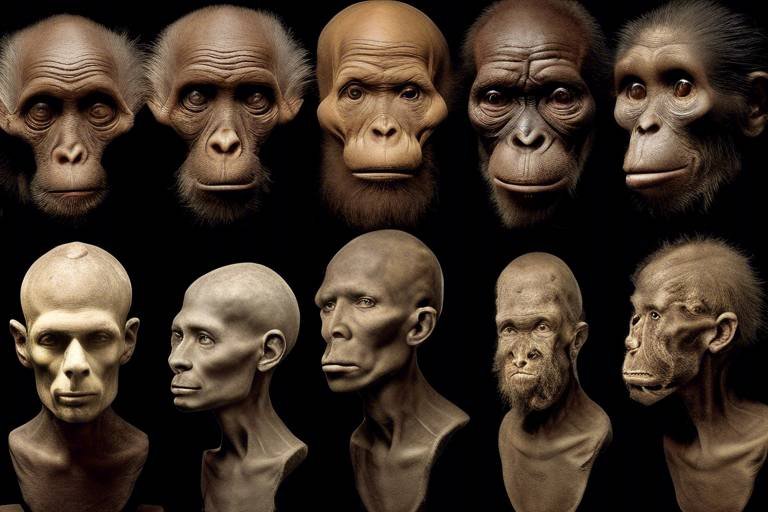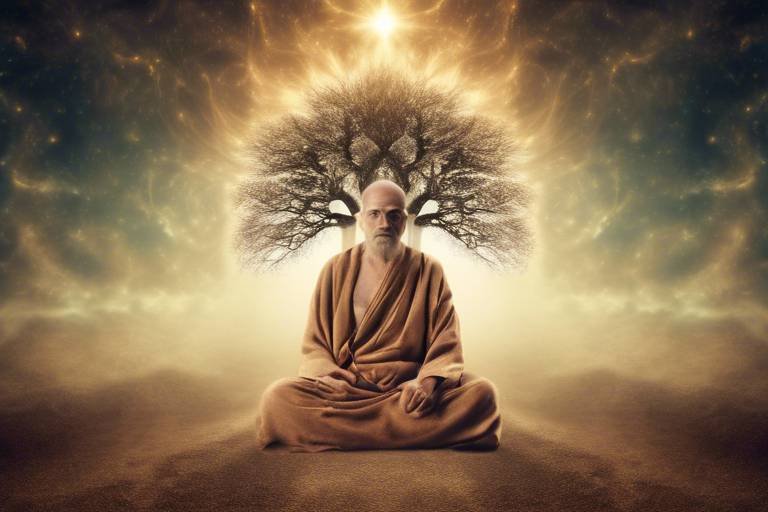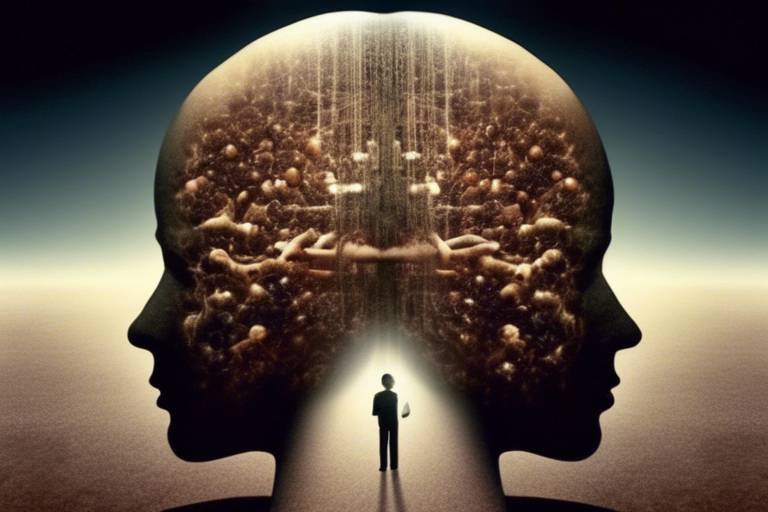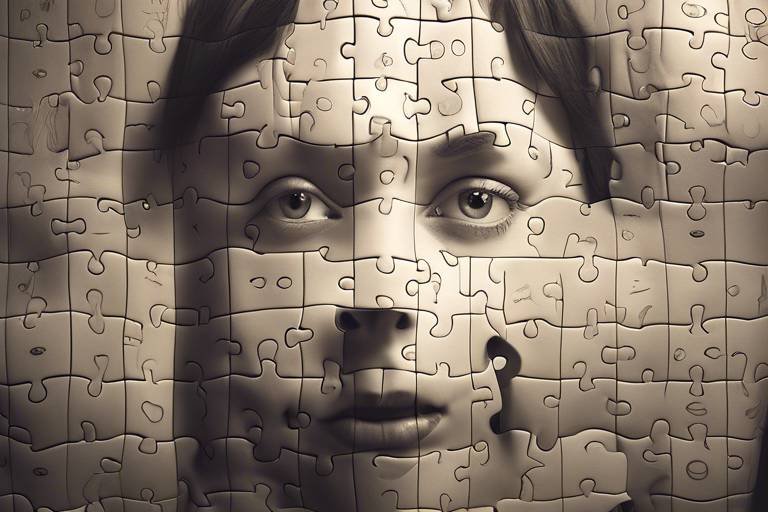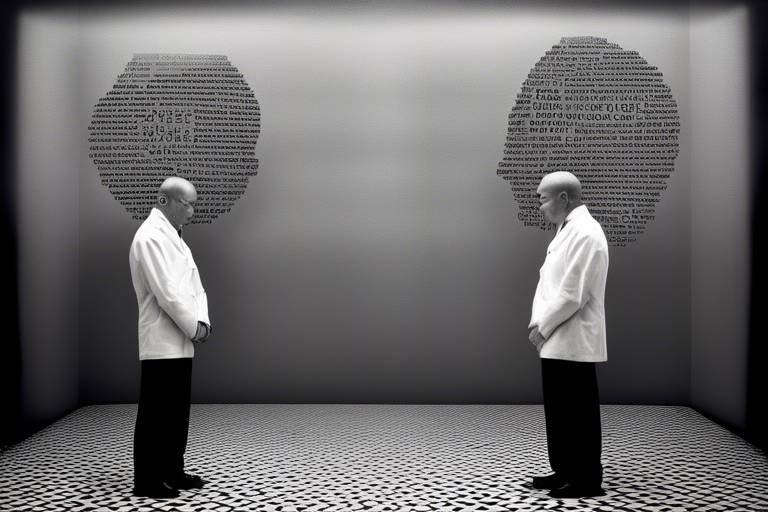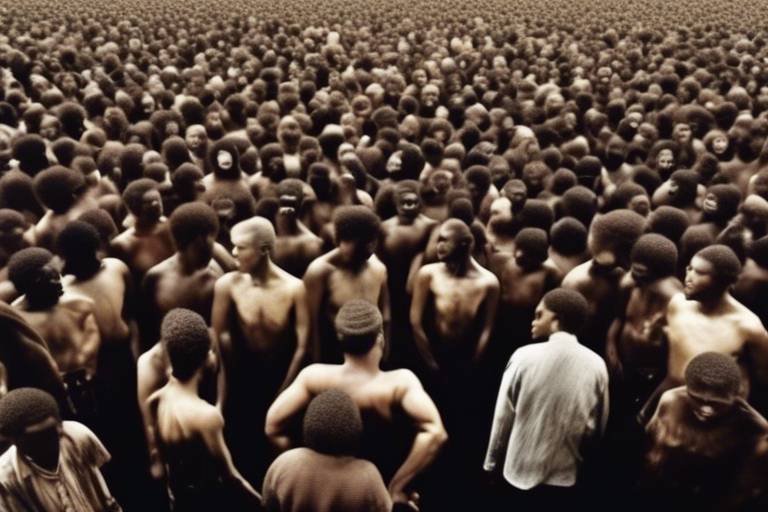What Is The Connection Between Consciousness and Reality?
The relationship between consciousness and reality is a profound and often perplexing topic that has fascinated thinkers across various disciplines for centuries. At its core, this connection raises fundamental questions: How does our awareness shape the way we perceive the world? Can reality exist independently of our consciousness, or is it intricately woven into the fabric of our minds? These questions are not just academic; they touch the very essence of what it means to be human. Imagine consciousness as a lens through which we view the universe. Just as a camera lens can alter the colors and focus of a photograph, our consciousness filters and interprets the raw data of reality, creating a unique experience for each individual.
To dive deeper, we must consider that consciousness is not a monolithic entity but rather a complex tapestry of thoughts, feelings, perceptions, and awareness. It's like a vast ocean, with each wave representing a different aspect of our awareness, from the mundane to the extraordinary. This complexity makes it challenging to pin down a single definition of consciousness. Some argue that it is merely a byproduct of brain activity, while others believe it transcends physical processes. Regardless of the perspective one takes, it is clear that consciousness plays a pivotal role in how we interpret our surroundings.
Moreover, the interplay between consciousness and reality can be likened to a dance between a performer and the audience. The performer (consciousness) interprets the music (reality), and in doing so, creates a unique experience that may resonate differently with each audience member. This analogy highlights the subjective nature of our experiences, suggesting that while reality exists independently, it is our consciousness that shapes and colors our perception of it.
As we explore this intricate relationship, it's essential to recognize that various fields—philosophy, neuroscience, psychology—offer distinct insights into how consciousness influences our understanding of reality. Each perspective adds a layer of depth to our comprehension, making it a rich and multifaceted subject. In the following sections, we will unpack these connections through philosophical theories, scientific findings, and psychological insights, ultimately aiming to illuminate the profound bond between consciousness and the world we inhabit.
- What is consciousness? Consciousness refers to the state of being aware of and able to think about one's own existence, thoughts, and surroundings.
- How does consciousness affect reality? Consciousness influences how we perceive and interpret reality, shaping our experiences and interactions with the world.
- Is reality independent of consciousness? This is a debated topic; some argue that reality exists independently, while others believe it is shaped by our consciousness.
- What are some philosophical theories related to consciousness? Key theories include dualism, materialism, and idealism, each offering different perspectives on the relationship between mind and matter.
- Can neuroscience explain consciousness? Neuroscience explores the brain mechanisms behind consciousness, showing how brain activity correlates with conscious experiences.
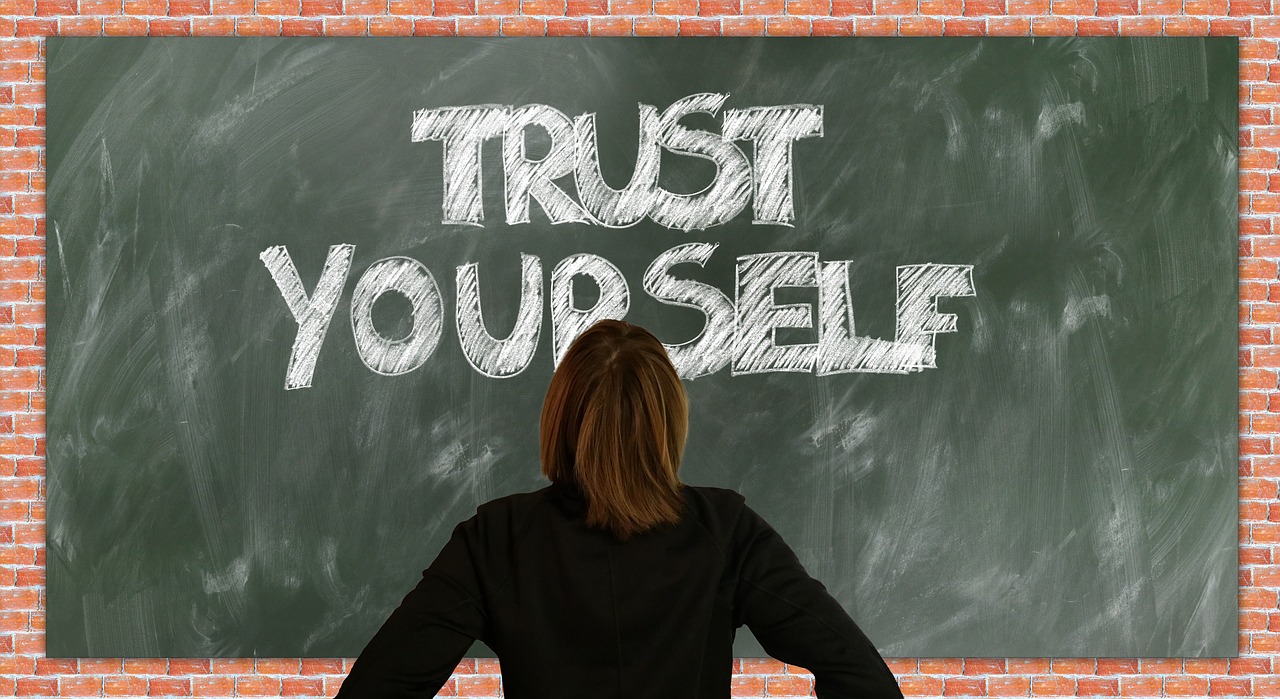
The Nature of Consciousness
Understanding consciousness is fundamental to exploring its connection with reality. At its core, consciousness can be defined as the state of being aware of and able to think about one's own existence, thoughts, and surroundings. But what does it really mean to be conscious? Is it merely a byproduct of brain activity, or is it something more profound? Throughout history, thinkers from various disciplines have attempted to unravel this complex concept, leading to a multitude of definitions and theories.
One of the most prominent perspectives is that consciousness is a multi-layered phenomenon. It encompasses not only our immediate awareness of the present moment but also our ability to reflect on past experiences and anticipate future events. This temporal aspect of consciousness is crucial; it allows us to learn from our mistakes and make informed decisions. As we navigate our daily lives, our consciousness acts as a lens through which we interpret the world, shaping our understanding of reality.
Philosophers have long grappled with the question of whether consciousness is a fundamental aspect of existence or merely an emergent property of physical processes. Some argue that consciousness is intrinsic to the universe, akin to space and time, while others contend that it arises solely from the intricate workings of the brain. This ongoing debate highlights the complexity and significance of consciousness in human experience.
To further illustrate the nature of consciousness, consider the following dimensions:
- Self-awareness: The ability to recognize oneself as an individual separate from the environment.
- Intentionality: The capacity of consciousness to be directed towards something, whether it be an object, thought, or feeling.
- Qualia: The subjective experiences of perception, such as the way colors, sounds, and emotions feel to an individual.
These dimensions not only enrich our understanding of consciousness but also emphasize its role in shaping our reality. For instance, our perception of color can differ dramatically from one person to another, highlighting how consciousness can create unique experiences of the same external stimuli. This raises intriguing questions about the nature of reality itself: is it something that exists independently of our consciousness, or is it shaped by our perceptions and experiences?
In conclusion, the nature of consciousness is a deeply intricate tapestry woven from various threads of awareness, perception, and experience. As we delve deeper into this fascinating subject, we begin to uncover not only the essence of what it means to be conscious but also how this consciousness interacts with and shapes the reality we inhabit.

Philosophical Perspectives
Philosophers have long grappled with the intricate dance between consciousness and reality, each proposing various theories that attempt to unravel this profound connection. At the heart of these discussions lies the question: what is the nature of our awareness, and how does it shape the world we perceive? The exploration of consciousness isn't just an academic exercise; it touches on the very essence of what it means to be human. Think of consciousness as a lens through which we view reality—each theory offers a different tint that colors our understanding.
One prominent theory is dualism, famously championed by René Descartes. Dualism posits that the mind and body are distinct entities, suggesting that our thoughts and feelings exist separately from the physical world. This perspective raises fascinating questions: If our consciousness is separate, how does it interact with our physical selves? Can our thoughts influence our actions, or are we merely puppets of our biological makeup? On the flip side, we have materialism, which argues that everything, including consciousness, is a product of physical processes. This view simplifies the connection between mind and matter, asserting that our thoughts are merely the byproducts of neural activity. The implications of these two perspectives are vast, shaping everything from our understanding of free will to our beliefs about the nature of existence.
The clash between dualism and materialism highlights a fundamental question: do we have free will? If dualism is correct, it opens the door to the possibility that our consciousness can transcend physical limitations, allowing for genuine agency in our decisions. However, if materialism holds true, it suggests that our choices are predetermined by our biological makeup, leading to a more deterministic view of human behavior. This debate is not merely academic; it influences how we perceive responsibility, morality, and even our sense of self.
Another compelling argument arises from the notion that consciousness might be a social construct. Some philosophers propose that our understanding of consciousness is shaped by cultural and societal influences. This perspective invites us to consider how our experiences and interactions with others mold our awareness. For instance, think about how language influences thought—does the language we speak shape the way we perceive reality? If consciousness is indeed a construct, it suggests that our reality is malleable, influenced by the narratives we create and share.
Then we have idealism, a philosophy that suggests reality is fundamentally mental or immaterial. Idealists argue that what we perceive as reality is a manifestation of our consciousness. This perspective flips the script, proposing that our thoughts and perceptions create the world around us rather than merely reflecting it. Imagine a painter who creates a masterpiece from a blank canvas; in this analogy, our consciousness acts as the artist, shaping the reality we experience. Idealism invites us to ponder profound questions about existence: Is reality simply a projection of our minds? How does this affect our interactions with the world and each other?
In summary, the philosophical perspectives on consciousness and reality are as diverse as they are profound. Each theory offers unique insights and challenges, prompting us to reflect on our own beliefs and experiences. As we navigate through these complex ideas, we are reminded that our understanding of consciousness is not just an intellectual pursuit; it is a journey into the very fabric of our existence.
- What is consciousness? Consciousness is the state of being aware of and able to think about one's own existence, thoughts, and surroundings.
- How does philosophy relate to consciousness? Philosophy explores the nature of consciousness, questioning how it relates to reality and whether it is separate from the physical world.
- What is dualism? Dualism is the belief that the mind and body are distinct entities, leading to questions about the interaction between the two.
- Can consciousness influence reality? Some philosophies, like idealism, suggest that consciousness shapes reality, while others argue it is merely a reflection of physical processes.

Dualism vs. Materialism
The debate between dualism and materialism is one of the most fascinating discussions in philosophy, particularly when it comes to understanding consciousness and reality. Dualism, championed by thinkers like René Descartes, posits that the mind and body are distinct entities. This means that our conscious experiences are separate from our physical existence. Imagine for a moment that your mind is like a movie projector, casting the film of your life onto the screen of reality. In this view, the projector (your mind) operates independently of the screen (your body), suggesting that consciousness could exist outside of physical constraints.
On the other hand, materialism argues that everything, including consciousness, is rooted in the physical world. According to materialists, our thoughts and feelings are simply products of brain activity. So, if we think of consciousness as a software program, then the brain would be the hardware running it. This perspective raises intriguing questions: If everything is physical, what does that mean for our understanding of free will and personal agency? Are we merely puppets dancing to the strings of biological processes?
To further illustrate the differences between these two perspectives, let's consider a simple comparison:
| Aspect | Dualism | Materialism |
|---|---|---|
| Nature of Existence | Mind and body are separate | Everything is physical |
| Consciousness | Independent of the body | Emerges from brain activity |
| Free Will | Supports the concept of free will | Challenges the notion of true free will |
As we dive deeper into this debate, it becomes clear that both perspectives offer valuable insights, yet they also present significant challenges. For instance, if dualism is correct, how do we explain the interactions between the mind and body? Conversely, if materialism holds true, how do we account for the rich, subjective experience of consciousness that seems to transcend mere physical processes?
Ultimately, the implications of choosing one viewpoint over the other can significantly shape our understanding of reality. If we lean towards dualism, we might find comfort in the idea that our consciousness is something more than just a byproduct of our biology. However, embracing materialism may lead us to a more scientific, evidence-based understanding of human experience, albeit with its own existential dilemmas.
In conclusion, the dualism vs. materialism debate is not just an academic exercise; it influences how we perceive ourselves and our place in the universe. As we continue to explore these theories, we may find that the truth lies somewhere in between, or perhaps in a completely new territory that we have yet to discover.

Implications for Free Will
The debate between dualism and materialism doesn't just scratch the surface of consciousness; it dives deep into the murky waters of free will. This is where things get really interesting. If we take dualism, which suggests that mind and body are separate entities, it opens up a fascinating avenue for the concept of free will. Are we, as conscious beings, truly able to make decisions independent of our physical selves? Or are our choices merely the byproducts of biological processes governed by the laws of physics?
On the flip side, materialism argues that everything, including our thoughts and decisions, is rooted in physical processes. If our consciousness is merely a product of brain activity, then can we really claim to have free will? This perspective raises profound questions about human agency. If every thought, every decision is predetermined by neural pathways and chemical reactions, what does that mean for our sense of self? Are we just puppets dancing to the tune of our biology?
To illustrate, consider the following table that summarizes the implications of these two perspectives on free will:
| Perspective | Implications for Free Will |
|---|---|
| Dualism | Suggests that free will exists as a separate entity, allowing for independent decision-making. |
| Materialism | Posits that free will is an illusion, as decisions are the result of biochemical processes. |
Moreover, if we view consciousness as a social construct, it adds yet another layer to the free will debate. If our understanding of consciousness is shaped by societal norms and experiences, does that mean our decisions are influenced by external factors beyond our control? This perspective suggests that our sense of agency is not just a personal experience but also a collective one, molded by cultural and social contexts.
In essence, the implications for free will are as complex as the relationship between consciousness and reality itself. Whether one leans toward dualism or materialism, or even views consciousness as a construct, the questions surrounding free will challenge our understanding of what it means to be human. Are we the authors of our own stories, or are we merely characters in a script written by our biology and environment? These questions linger, inviting us to explore the depths of our own consciousness and the nature of our reality.
- What is the difference between dualism and materialism? Dualism posits that the mind and body are separate, while materialism argues that everything, including consciousness, is physical.
- Can free will exist in a materialistic framework? This is a contentious issue; many argue that if everything is predetermined by physical processes, free will may be an illusion.
- How does the social construct view of consciousness affect free will? It suggests that our decisions are influenced by societal norms, potentially limiting our sense of individual agency.
- Is consciousness solely a product of brain activity? While neuroscience suggests a strong correlation, the nature of consciousness remains a deeply debated topic.

Consciousness as a Construct
When we dive into the idea of consciousness being a social construct, it’s like peeling an onion—layer after layer reveals complexities that can make your head spin. Imagine for a moment that consciousness is not just an innate part of being human, but rather a tapestry woven from cultural, social, and historical threads. This perspective suggests that our understanding of consciousness is heavily influenced by the society we live in, the language we speak, and the experiences we share with others. In this sense, consciousness is not merely a biological phenomenon but a dynamic interplay of social interactions and cultural narratives.
Consider how different cultures perceive consciousness. For instance, in Western societies, the individualistic approach often emphasizes personal awareness and self-identity. In contrast, many Eastern philosophies advocate for a collective consciousness, where the self is seen as interconnected with the universe. This divergence raises intriguing questions: Are our thoughts and feelings truly ours, or are they shaped by societal norms and expectations? If consciousness is a construct, then our perceptions of reality could be equally malleable, colored by the beliefs and values we adopt from our surroundings.
Furthermore, viewing consciousness as a construct leads us to examine the implications of language and communication. Language is not just a tool for expressing thoughts; it shapes our reality. The Sapir-Whorf hypothesis posits that the structure of a language affects its speakers' worldview and cognition. For example, consider how different languages categorize colors or emotions. This categorization can influence how speakers of those languages perceive and experience the world. If consciousness is intricately tied to language, then our understanding of reality is also constructed through the linguistic frameworks we inhabit.
In essence, the idea that consciousness is a construct challenges us to rethink our assumptions about what it means to be aware. It invites us to consider the role of societal influences in shaping our thoughts and behaviors. Are we merely products of our environments, or do we possess the agency to redefine our consciousness? This inquiry opens up a fascinating dialogue about human potential and the transformative power of awareness.
To further illustrate this concept, let’s look at a table that summarizes the key aspects of consciousness as a construct:
| Aspect | Description |
|---|---|
| Social Influence | Consciousness is shaped by cultural norms and societal interactions. |
| Language | Language structures can influence thought processes and perceptions of reality. |
| Collective vs. Individual | Different cultures may emphasize individual awareness or collective consciousness. |
| Agency | Individuals may have the power to redefine their consciousness through personal experiences. |
Ultimately, recognizing consciousness as a construct not only enriches our understanding of the mind but also empowers us to explore the depths of our awareness. It encourages us to question the very fabric of our reality and consider how we can consciously shape our experiences. This exploration is not just an academic exercise; it’s a journey into the heart of what it means to be human, fostering a deeper connection with ourselves and the world around us.
- What does it mean to say consciousness is a construct? It means that our understanding of consciousness is influenced by social, cultural, and linguistic factors, rather than being solely a biological phenomenon.
- How does language affect consciousness? Language shapes how we think and perceive the world, influencing our consciousness and the way we experience reality.
- Can we change our consciousness? Yes, by engaging in new experiences, learning, and reflecting on our beliefs, we can reshape our consciousness and perceptions.

Idealism and Reality
When we dive into the realm of idealism, we're stepping into a philosophical perspective that flips our usual understanding of reality on its head. Instead of viewing reality as something that exists independently of our minds, idealism posits that reality is fundamentally shaped by our consciousness. Imagine for a moment that the universe is like a grand stage play, where our thoughts, perceptions, and experiences are the actors bringing the scene to life. This perspective suggests that without our awareness, the world as we know it might not even exist!
But how does this all work? At its core, idealism argues that the material world is secondary to the mental realm. In other words, our thoughts and consciousness are not mere reflections of an external reality; they are the very fabric that weaves together our experiences. Think about it: when you dream, the vivid worlds you create feel just as real as the waking world, don't they? This raises intriguing questions about the nature of existence and how we define what is 'real.'
One of the most famous proponents of idealism was the philosopher George Berkeley, who famously stated, "To be is to be perceived." This means that something only exists if it is being observed. If we apply this idea to our daily lives, we can see how our perceptions shape our understanding of the world. For instance, two people can witness the same event but interpret it in vastly different ways based on their beliefs, emotions, and past experiences. This subjectivity highlights the idea that reality is not a fixed entity but rather a fluid construct influenced by our consciousness.
Furthermore, idealism challenges us to reconsider the implications of our thoughts and beliefs. If our consciousness plays such a pivotal role in shaping reality, then our mindset can literally alter our experiences. Positive thoughts can lead to a more fulfilling life, while negative beliefs can create a distorted perception of reality. This idea is echoed in various psychological practices, such as cognitive behavioral therapy, where changing one’s thought patterns can lead to significant shifts in emotional well-being.
As we explore the connection between idealism and reality, we can also consider its impact on fields like quantum physics. Some interpretations of quantum mechanics suggest that the observer plays a crucial role in determining the state of a particle. This fascinating intersection between science and philosophy further blurs the lines between consciousness and reality, suggesting that our awareness might not just perceive reality but actively participate in its creation.
In summary, idealism presents a compelling perspective on the relationship between consciousness and reality. It invites us to reflect on how our thoughts shape our experiences and challenges us to consider the power of perception in defining what is real. As we continue to explore this intricate connection, we uncover layers of understanding that not only deepen our appreciation for consciousness but also empower us to navigate our realities with intention and awareness.
- What is idealism in philosophy? Idealism is the philosophical view that reality is fundamentally shaped by our consciousness and perceptions, suggesting that the material world is secondary to the mental realm.
- How does idealism relate to consciousness? Idealism posits that consciousness is not just a passive observer of reality but an active participant in shaping it, emphasizing the importance of our thoughts and beliefs.
- Can idealism be applied in everyday life? Yes! By understanding that our perceptions influence our experiences, we can cultivate a more positive mindset, leading to a more fulfilling life.
- What role does quantum physics play in idealism? Some interpretations of quantum mechanics suggest that the observer affects the state of particles, which parallels the idealist view that consciousness plays a crucial role in shaping reality.
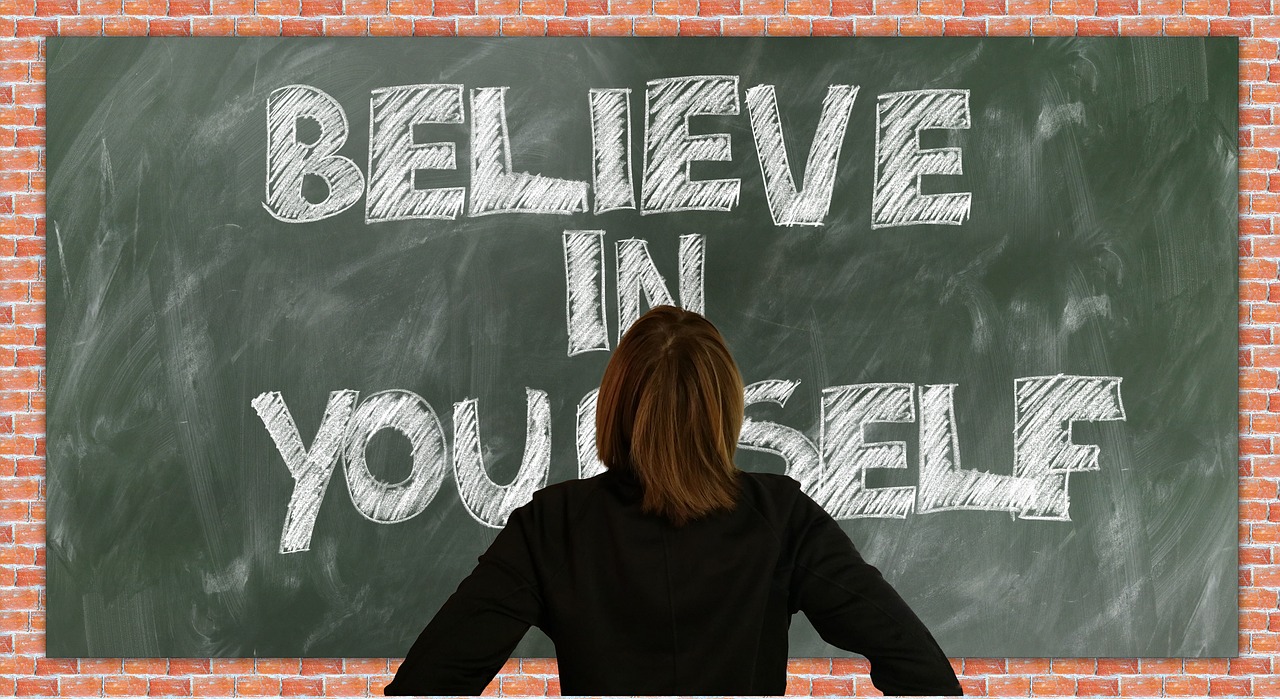
Scientific Insights
When we dive into the realm of scientific research, we uncover a treasure trove of insights that illuminate the intricate relationship between consciousness and reality. Neuroscience and psychology have made significant strides in understanding how our conscious experiences shape our perceptions and interactions with the world around us. At the core of this exploration lies the question: how does our brain create the rich tapestry of experiences we call consciousness? This area of study is not just about neurons firing; it’s about understanding the very essence of what it means to be aware.
One of the most fascinating aspects of neuroscience is the way it investigates the mechanisms behind consciousness. Researchers have identified specific areas of the brain, such as the prefrontal cortex, that are crucial for higher-order functions like decision-making and self-awareness. For instance, studies using functional magnetic resonance imaging (fMRI) have shown that distinct patterns of brain activity correlate with different conscious experiences. This has led to the conclusion that consciousness is not a single entity but rather a complex interplay of various brain regions working in harmony.
Moreover, the connection between consciousness and reality extends beyond mere biology. Quantum theory has introduced a revolutionary perspective that challenges our traditional views. Some scientists propose that consciousness might play a role in the fabric of reality itself. This idea is encapsulated in the concept of quantum consciousness, which suggests that our conscious awareness could influence quantum events. While this theory is still in its infancy and remains highly controversial, it opens up a Pandora's box of questions: Could our thoughts actually shape the physical world? Are we, in some way, co-creators of our reality?
To further illustrate the scientific insights into consciousness, let’s take a look at the following table that summarizes key findings from recent studies:
| Study | Findings | Implications |
|---|---|---|
| Neuroscience of Consciousness | Identified brain regions involved in conscious awareness. | Understanding the biological basis of consciousness. |
| Quantum Theory | Proposed links between consciousness and quantum mechanics. | Challenging traditional views of reality. |
| Psychological Studies | Investigated the impact of consciousness on decision-making. | Insights into human behavior and agency. |
In addition to neuroscience and quantum theory, psychology has also contributed significantly to our understanding of consciousness. Psychological studies often explore how our conscious thoughts influence our actions and decisions. For example, the concept of cognitive bias highlights how our perceptions can be distorted by our beliefs and experiences. This leads us to ponder: if our consciousness can alter our perception of reality, what does that say about the nature of truth itself?
Ultimately, the scientific exploration of consciousness and reality is a thrilling journey filled with unanswered questions and profound implications. As we continue to unravel the mysteries of the mind, we may find that our understanding of reality is not as fixed as we once believed. Instead, it may be a fluid interplay between our conscious awareness and the world around us, a dance of perception that shapes our very existence.
- What is consciousness?
Consciousness refers to the state of being aware of and able to think about one’s own existence, thoughts, and surroundings. - How does neuroscience study consciousness?
Neuroscience studies consciousness by examining brain activity and identifying regions responsible for different conscious experiences using tools like fMRI. - What is quantum consciousness?
Quantum consciousness is a theoretical concept suggesting that consciousness may play a role in quantum events, potentially influencing reality. - Can consciousness affect reality?
While still a matter of debate, some theories propose that our conscious thoughts could influence physical reality, challenging traditional views.

Neuroscience of Consciousness
When we dive into the , we embark on a fascinating journey through the intricate workings of the human brain. Neuroscience seeks to unravel the complex mechanisms that underlie our conscious experiences, providing insights into how we perceive the world around us. At the core of this exploration is the understanding that consciousness is not merely a byproduct of brain activity, but rather a fundamental aspect of our existence that shapes our reality.
To grasp the connection between consciousness and reality, it's essential to consider how brain activity correlates with our conscious experiences. Neuroscientists have identified several key areas of the brain that are particularly important in this regard. For instance, the prefrontal cortex plays a critical role in decision-making and self-awareness, while the thalamus acts as a relay station for sensory information. Together, these regions create a dynamic interplay that allows us to interpret and engage with our environment.
One of the most intriguing findings in neuroscience is the concept of neural correlates of consciousness (NCC). This refers to the specific brain processes that correspond to conscious experience. Researchers utilize advanced imaging techniques, such as functional magnetic resonance imaging (fMRI) and electroencephalography (EEG), to observe brain activity in real-time. Through these methods, they have discovered that certain patterns of brain activity are consistently associated with specific conscious states. For example, when we focus intently on a task, our brain exhibits distinct activity patterns that differ from when we are in a relaxed state.
Moreover, the study of consciousness often intersects with discussions about altered states of consciousness. These states can arise from various factors, including meditation, sleep, or the use of psychoactive substances. Neuroscience has shown that these altered states can lead to profound changes in perception and awareness, challenging our conventional understanding of reality. For example, during deep meditation, individuals often report experiences of unity and interconnectedness, suggesting that consciousness can transcend ordinary boundaries.
As we delve deeper into the neuroscience of consciousness, we encounter intriguing questions about the nature of reality itself. Is reality something that exists independently of our consciousness, or is it shaped by our perceptions? Some neuroscientists argue that our brains construct a model of reality based on sensory input, meaning that our conscious experience is a subjective interpretation rather than an objective truth. This idea aligns with the philosophical perspective known as constructivism, which posits that our understanding of reality is fundamentally influenced by our consciousness.
In summary, the neuroscience of consciousness offers a captivating glimpse into how our brains create our experiences and shape our understanding of reality. As research continues to advance, we may uncover even more profound connections between consciousness and the world around us, ultimately leading to a richer understanding of what it means to be human.
- What is consciousness? Consciousness refers to our awareness of ourselves and our environment, encompassing thoughts, feelings, and perceptions.
- How does neuroscience study consciousness? Neuroscience studies consciousness by examining brain activity and identifying neural correlates that correspond to conscious experiences.
- What are altered states of consciousness? Altered states of consciousness are non-ordinary states of awareness, which can be induced by various factors such as meditation, sleep, or drugs.
- Is reality the same for everyone? Reality may be perceived differently by individuals based on their unique consciousness and experiences, suggesting a subjective interpretation of the world.
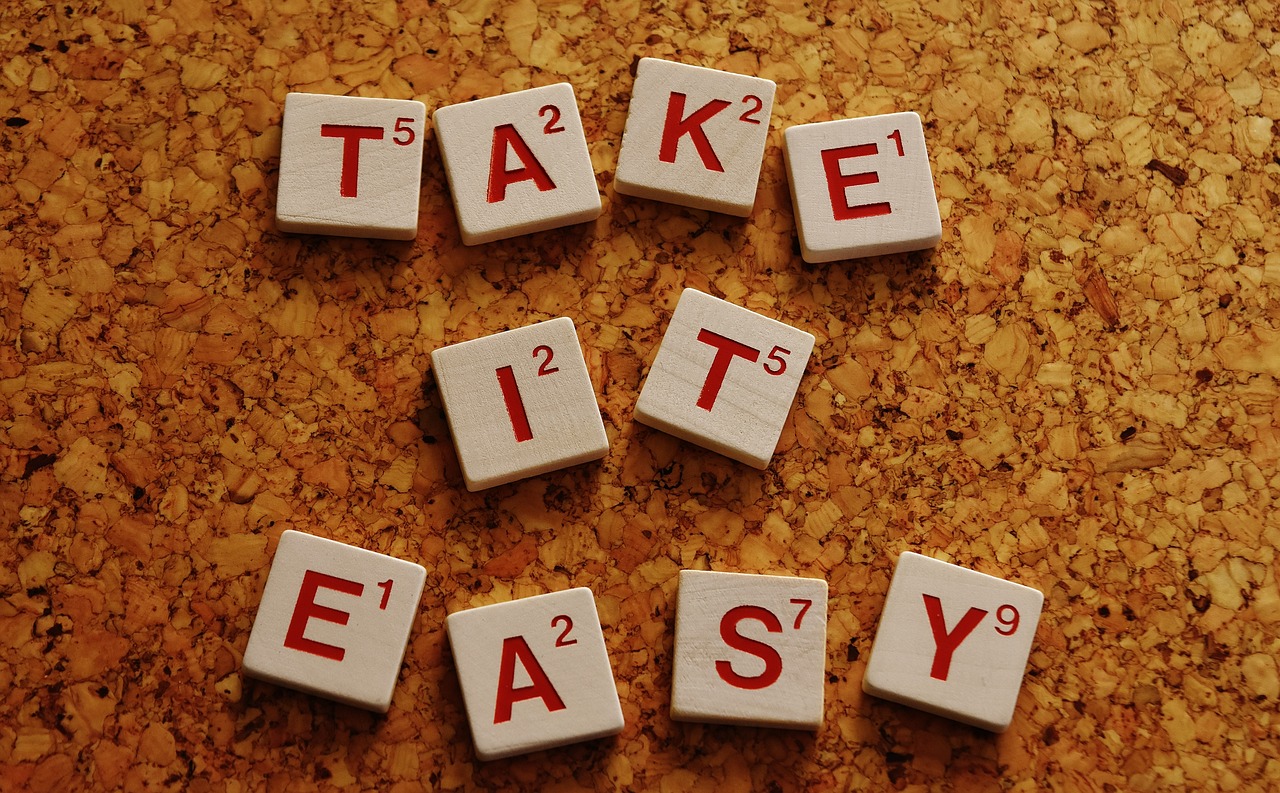
Quantum Theory and Consciousness
The relationship between quantum theory and consciousness has sparked considerable debate, capturing the imagination of scientists, philosophers, and curious minds alike. At its core, quantum theory challenges our conventional understanding of reality, suggesting that the universe operates on principles that seem almost fantastical. But how does this relate to our conscious experience? To grasp this connection, we must first understand the fundamental ideas of quantum mechanics.
Quantum mechanics posits that particles exist in a state of probability until they are observed or measured, a phenomenon famously illustrated by the thought experiment known as Schrödinger's cat. In this scenario, a cat placed in a sealed box is simultaneously alive and dead until someone opens the box to check. This peculiar behavior raises profound questions about the role of the observer in shaping reality. Does our consciousness play a part in collapsing the wave function of possibilities into a single outcome? This idea suggests that our awareness might not just passively observe reality but actively participate in its creation.
Some theorists, like Roger Penrose, propose that consciousness arises from quantum processes within the brain's microtubules. This hypothesis merges the realms of neuroscience and quantum physics, suggesting that the brain operates on a quantum level, which could explain the richness of human experience and the phenomenon of consciousness itself. If true, this theory could revolutionize our understanding of both consciousness and reality, blurring the lines between the mind and the universe.
Yet, the intersection of quantum theory and consciousness is not without controversy. Critics argue that while quantum mechanics provides a fascinating framework for understanding the universe, applying it to consciousness may lead us down a rabbit hole of speculation without solid empirical support. They caution that we should tread carefully, as the leap from quantum mechanics to consciousness is fraught with assumptions that may not hold up under scrutiny.
Despite these debates, the implications of quantum theory for our understanding of consciousness are profound. If our conscious experience indeed influences the fabric of reality, we might need to reconsider our notions of free will, existence, and the very nature of the universe. As we delve deeper into the mysteries of consciousness and quantum mechanics, we find ourselves standing at the precipice of a new understanding—one that could redefine what it means to be human in an ever-expanding cosmos.
In summary, the interplay between quantum theory and consciousness invites us to ponder some of life's most profound questions:
- Is consciousness merely a byproduct of physical processes, or does it hold a deeper significance?
- Can our awareness influence the outcomes of events at a quantum level?
- What does this mean for our understanding of reality itself?
As we continue to explore these questions, the connection between consciousness and reality remains one of the most intriguing frontiers in both science and philosophy, promising to reshape our understanding of existence itself.
- What is quantum theory? Quantum theory is a fundamental theory in physics that describes the physical properties of nature at the scale of atoms and subatomic particles.
- How does consciousness relate to quantum mechanics? Some theories suggest that consciousness may influence quantum events, proposing that our awareness plays a role in shaping reality.
- Are there any scientific proofs connecting consciousness and quantum theory? While there are intriguing hypotheses, definitive empirical evidence is still lacking, and the relationship remains largely theoretical.
Frequently Asked Questions
- What is consciousness?
Consciousness is the state of being aware of and able to think about one's own existence, thoughts, and surroundings. It's like the spotlight of your mind that shines on everything you perceive, helping you make sense of the world.
- How does consciousness relate to reality?
The connection between consciousness and reality is complex. Our consciousness shapes how we perceive reality, influencing our thoughts, emotions, and actions. In essence, what we are aware of can significantly alter our experience of the world around us.
- What are the main philosophical perspectives on consciousness?
Philosophers have explored various theories regarding consciousness, including dualism, which posits a separation between mind and body, and materialism, which argues that everything is physical. These perspectives help us understand the intricate relationship between our minds and the reality we experience.
- Can consciousness exist without the physical body?
This question dives into the heart of dualism versus materialism. Dualists believe that consciousness can exist independently of the body, while materialists argue that consciousness is a product of physical processes in the brain. This debate raises fascinating questions about the nature of existence and free will.
- Is consciousness a social construct?
Some philosophers argue that consciousness can be viewed as a social construct, shaped by cultural and societal influences. This perspective suggests that our understanding of consciousness is not just an individual experience but is also influenced by the world around us.
- What does neuroscience say about consciousness?
Neuroscience investigates the brain's mechanisms underlying consciousness, exploring how brain activity correlates with conscious experiences. This scientific perspective provides valuable insights into how our brain processes information and how it relates to our awareness of reality.
- How does quantum theory relate to consciousness?
Quantum theory introduces intriguing possibilities regarding the connection between consciousness and reality. Some theories suggest that quantum mechanics may play a role in our conscious awareness, leading to profound implications for our understanding of existence and the universe.




